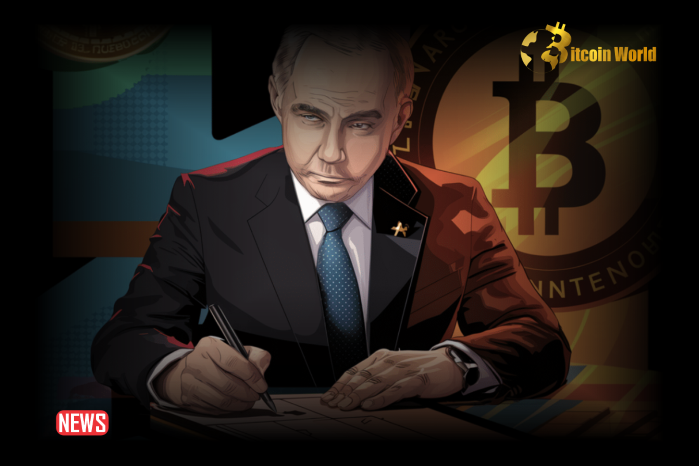In a significant shift, the Russian central bank is signaling a green light for crypto. Facing the bite of Western sanctions, they’re urging businesses to explore digital assets like cryptocurrencies as a lifeline for international transactions. Is this a game-changer, or just a temporary fix? Let’s dive into how Russia is pivoting towards crypto and what it means for the global financial landscape.
Why the Sudden Crypto Pivot? Sanctions Bite Deep
For Russia, navigating the choppy waters of international finance has become increasingly complex. Western sanctions, particularly those targeting major financial institutions and payment systems, have thrown a wrench into traditional trade routes. Think of it like this: when your usual payment highways are blocked, you start looking for alternative routes – and for Russia, crypto and digital assets are emerging as potentially viable detours.
Bank of Russia Governor Elvira Nabiullina openly acknowledged the severity of the payment challenges facing the Russian economy. Speaking at a financial conference in St. Petersburg, she emphasized the need for innovative solutions, stating that “multiple choice solutions,” including cryptocurrencies, are now on the table. This marks a notable softening of the central bank’s previously cautious stance on crypto.
Key Takeaways from Nabiullina’s Announcement:
- Sanctions are a Major Driver: The urgency to find alternative payment methods is directly linked to the impact of Western sanctions.
- Crypto as a Solution: The central bank is actively suggesting businesses consider cryptocurrencies and digital assets for international payments.
- Flexibility is Key: Businesses are encouraged to be adaptable and resourceful in finding solutions, even if they are unconventional.
- New Tech, New Opportunities: Nabiullina highlighted that financial technology is creating payment schemes that were previously unimaginable.
Crypto’s Role: A Sanctions Shield?
So, how exactly can crypto help Russia counter sanctions? Here’s a breakdown:
- Decentralization: Cryptocurrencies operate outside the traditional banking system, making them potentially less susceptible to sanctions imposed on banks.
- Borderless Transactions: Crypto transactions can theoretically bypass geographical restrictions and traditional financial intermediaries, facilitating payments across borders even when conventional channels are blocked.
- Speed and Efficiency: Crypto transactions can often be faster and more efficient than traditional international bank transfers, which can be crucial in time-sensitive trade scenarios.
However, it’s not all smooth sailing. While crypto offers potential advantages, there are also significant hurdles:
Challenges of Crypto Adoption for Sanctions Evasion:
- Volatility: Cryptocurrency values are notoriously volatile. This makes them risky for large-scale international trade where price stability is essential.
- Scalability and Speed: While some cryptocurrencies offer fast transactions, scaling them to handle the volume of Russia’s international trade is a significant challenge.
- Regulatory Scrutiny: While Russia is softening its stance, international regulators are keeping a close watch on crypto’s use for sanctions evasion. Increased scrutiny could lead to further restrictions.
- Adoption and Infrastructure: Widespread adoption by businesses and the development of necessary infrastructure for crypto payments will take time and investment.
Beyond Crypto: The BRICS Bridge and Alternative Payment Systems
Russia isn’t putting all its eggs in the crypto basket. Nabiullina also emphasized the importance of developing alternative global payment systems, most notably the BRICS Bridge.
What is the BRICS Bridge?
The BRICS Bridge is envisioned as a multilateral digital settlement and payment platform designed to connect the financial systems of BRICS nations. This initiative aims to:
- Reduce Reliance on Western Systems: Create a payment system independent of SWIFT and other Western-dominated financial institutions.
- Boost Intra-BRICS Trade: Facilitate smoother and more efficient trade among BRICS member countries.
- Strengthen Financial Autonomy: Give BRICS nations greater control over their financial transactions and reduce vulnerability to external pressures.
The BRICS group, now expanded to ten members including major economies like China, India, and the UAE, represents a significant portion of the global economy. A successful BRICS Bridge could reshape international finance, offering an alternative to the existing Western-centric system.
However, Nabiullina cautioned that the BRICS Bridge is still in the early stages of development and faces complexities. Building a robust and reliable alternative payment system is a long-term project.
Russia’s Crypto Strategy: Desperation or Pragmatism?
Is Russia’s embrace of crypto a sign of desperation, or a pragmatic adaptation to a changing geopolitical landscape? Perhaps it’s a bit of both. Sanctions have undoubtedly created an urgent need for alternative financial solutions. However, Russia’s move also reflects a broader trend of nations exploring digital assets to diversify their financial options and reduce dependence on traditional systems.
The situation highlights the growing tension between the established Western financial order and the rise of alternative systems, fueled by both technological innovation and geopolitical shifts. Whether crypto and initiatives like the BRICS Bridge can truly counter the impact of Western sanctions remains to be seen. But one thing is clear: the financial battleground is evolving, and Russia is actively exploring new strategies to navigate it.
What are your thoughts on Russia’s strategy to use cryptocurrencies to counter Western sanctions? Let us know in the comments section below.
Disclaimer: The information provided is not trading advice, Bitcoinworld.co.in holds no liability for any investments made based on the information provided on this page. We strongly recommend independent research and/or consultation with a qualified professional before making any investment decisions.




